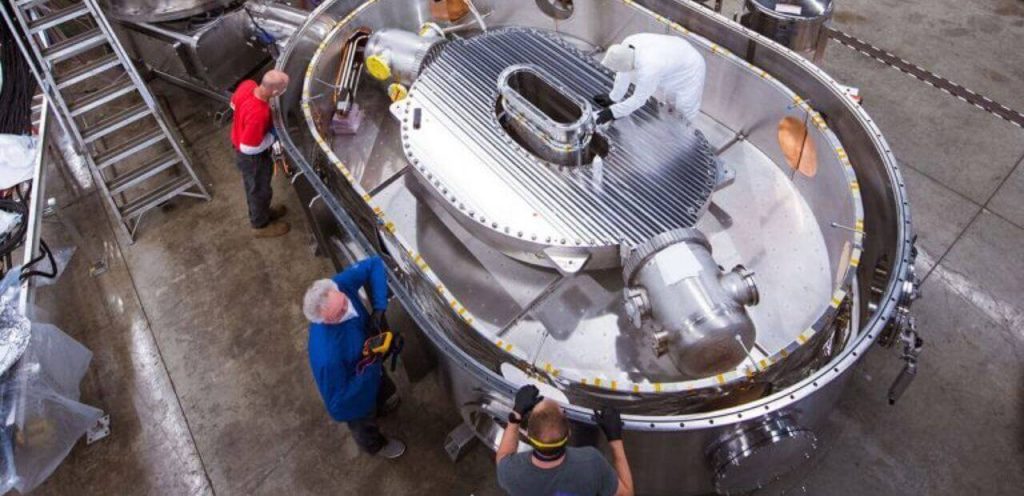A Diploma in Civil Engineering in Bangladesh typically spans over a 4-year period. It equips students with technical and practical knowledge in the field of civil engineering.
Embarking on a Diploma in Civil Engineering in Bangladesh is a strategic step towards a career in the construction industry. This program offers a blend of theoretical studies and hands-on experiences that prepare graduates for various roles in construction project management, infrastructure development, and urban planning.
Technical education boards in Bangladesh oversee the curriculum, ensuring it aligns with industry standards and technological advancements. As the nation focuses on infrastructural growth, the diploma serves as a cornerstone for aspiring technicians. The coursework delves into subjects like materials science, structural analysis, and environmental engineering, fostering a comprehensive understanding vital for the workforce. Graduates find opportunities in both the public and private sectors, contributing to the country’s developmental projects. This educational pathway is not just a launchpad for future engineers, but also a boon for the country’s growing need for skilled civil engineering professionals.
Civil Engineering In Bangladesh: Scope And Opportunities
The Economic Growth Engine
Civil engineers drive economic progression. Their roles in construction, transportation, and utility systems are crucial. In Bangladesh, a diploma opens doors to these sectors. Students quickly become part of an engine boosting the economy.- Urban Development: Fast-paced city expansion provides countless job chances.
- Resource Management: Efficient handling of resources can set young engineers apart.
Infrastructure Development Surge
The nation’s roadmap includes massive infrastructure plans. A surge in projects like roads, bridges, and buildings is evident. Diploma holders enter a job market ripe with opportunities.| Sector | Opportunities |
|---|---|
| Residential | Design and construct future homes. |
| Commercial | Create spaces for businesses to thrive. |
| Public Works | Contribute to community welfare through infrastructure. |
Unveiling The Diploma In Civil Engineering
Program Structure
The diploma program is structured to build foundational knowledge. It spreads across four years. Each year consists of two semesters. The curriculum is a mix of theoretical and practical learning.| Year | Semesters |
|---|---|
| First Year | 2 Semesters |
| Second Year | 2 Semesters |
| Third Year | 2 Semesters |
| Fourth Year | 2 Semesters |
Key Study Areas
Students will explore several critical areas throughout the program. Subjects range from basic sciences to specialized engineering aspects.- Engineering Mathematics
- Material Strength
- Environmental Engineering
- Structural Analysis
- Construction Project Management
- Transportation Engineering
- Surveying
- Water Resources Engineering
The Institutions: Centers Of Excellence
Top Polytechnics For Civil Engineering Diploma
Bangladesh boasts several polytechnics known for their civil engineering programs. Students receive quality education and training from these top institutions.- Dhaka Polytechnic Institute – Known for its modern facilities and expert faculty.
- Chittagong Polytechnic Institute – Offers a comprehensive civil engineering diploma with industry exposure.
- Rajshahi Polytechnic Institute – Combines theoretical knowledge with practical application.
- Khulna Polytechnic Institute – Emphasizes on innovative construction techniques.
Accreditation And Recognition
Certification from a recognized body ensures the quality of education. Each polytechnic in Bangladesh adheres to strict standards for their civil engineering programs.| Institute | Accredited By |
|---|---|
| Dhaka Polytechnic Institute | Board of Technical Education, Bangladesh |
| Chittagong Polytechnic Institute | Board of Technical Education, Bangladesh |
| Rajshahi Polytechnic Institute | Board of Technical Education, Bangladesh |
| Khulna Polytechnic Institute | Board of Technical Education, Bangladesh |

Credit: www.altium.com
Eligibility Criteria For Aspiring Technicians
Academic Requirements
Before applying, know what educational background is necessary:- Completion of SSC (Secondary School Certificate) is a must.
- Students must have at least a 2.0 GPA in Mathematics and Science subjects.
- For O-Level students, a minimum of 5 passes including Math and Science is required.
Admission Process
The path to enrollment involves several steps:- Application submission within the stipulated deadline is critical.
- Applicants must pass the entrance exam, focusing on math and science.
- Successful candidates will receive an admission invitation.
- A medical fitness test must be cleared to confirm the admission.
Curriculum Insight: What To Expect
Core Subjects Breakdown
Civil Engineering students dive into a pool of core subjects. These subjects build a strong foundation. Let’s break down key areas:- Materials Science: Understand the properties and uses of construction materials.
- Structural Mechanics: Learn how forces affect different structures.
- Surveying: Master mapping and land measuring techniques.
- Fluid Mechanics: Explore the behavior and control of fluids.
- Construction Technology: Get a grip on modern construction methods.
- Environmental Engineering: Study the impact of engineering on the environment.
Practical Training And Workshops
Diploma students participate in hands-on training. This prepares them for real-life problem-solving. Training involves:| Training Type | Description |
|---|---|
| Site Visits | Field experience at live construction sites. |
| Laboratory Work | Experiments to test materials and soil. |
| Workshops | Interactive sessions with industry tools and technology. |
| Project-Based Learning | Team projects solving real-world engineering problems. |

Credit: www.linkedin.com
Faculty Credentials: Learning From The Experts
Industry Experienced Instructors
The faculty’s extensive experience in the civil engineering field sets the foundation for an enriching academic journey. It’s not just about learning theories; it’s about understanding how these principles apply in real-world scenarios. Our instructors have:- Worked on significant projects, from skyscrapers to bridges.
- Deep insights into the latest technological advancements.
- A thorough understanding of both local and international engineering standards.
Faculty-student Engagement
Our program emphasizes a collaborative learning environment where students actively engage with faculty. This relationship fosters direct mentorship and personal growth. Features of our faculty-student engagement include:- Regular one-on-one sessions to discuss academic progress.
- Collaboration on research projects that contribute to the field.
- Access to industry networks and job placements through faculty connections.
Fees And Funding: Financial Planning For Education
Earning a diploma in Civil Engineering in Bangladesh requires careful financial planning. With an overview of fees and funding, we’ll guide you through budgeting for this significant educational milestone.
Tuition And Associated Costs
Understanding all costs involved is crucial.
- Course fees: Vary between public and private institutions.
- Lab fees: Additional charges for practical sessions.
- Materials: Books and supplies have separate costs.
- Miscellaneous expenses: Consider travel, food, and accommodation.
Create a budget that includes these costs. Plan for unexpected expenses as well.
Scholarships And Aid Options
Several financial aid options can lighten your financial burden.
| Financial Aid | Eligibility | How to Apply |
|---|---|---|
| Government Scholarships | Merit-based or need-based | Check official education board websites |
| Institutional Aid | Varies by institute | Visit college financial aid offices |
| NGO Scholarships | Specific criteria | Apply through respective NGO platforms |
Research each option thoroughly. Apply early to increase your chances of receiving aid.
Campus Life: More Than Just Studies
Infrastructure And Facilities
The Infrastructure lays the foundation for a conducive learning environment. State-of-the-art laboratories, spacious lecture halls, and modern libraries are hallmarks of Bangladeshi civil engineering campuses. Ample facilities ensure students have the resources they need for academic excellence.- High-tech Computer Labs to simulate real-world scenarios
- Resource-rich Libraries for an immersive reading experience
- Advanced Research Centers for innovative project work
- Comfortable Dormitories to rest and rejuvenate
Extracurricular Activities
An engaging campus life is incomplete without extracurricular activities. These activities provide refreshing breaks from studies and avenues for students to discover hidden talents. Sports, cultural events, and clubs form the social backbone of the campus.| Activity Type | Examples |
|---|---|
| Sports | Cricket, Football, Badminton |
| Cultural | Music Festivals, Theatre |
| Clubs | Robotics Club, Environment Club |
Hands-on Experience: Internships And On-site Training
Internship Opportunities
Internships shape future engineers. Students gain valuable insights into the construction industry. They also build professional skills. Here’s what interns often learn:- Project management tasks
- Site planning and design techniques
- Use of industry-standard software
- Safety measures and protocols
Industry Connections
Building industry connections is crucial for civil engineering students. The diploma courses in Bangladesh offer networking opportunities through:- Guest lectures from experienced engineers
- Site visits to ongoing projects
- Industry partnerships for internships

Credit: www.sciencefriday.com
Tech-enabled Learning: Modern Education Tools
Software Proficiency
Understanding and mastering industry-standard software is crucial for civil engineering students. They can design, analyze, and visualize construction projects with these skills. Programs like AutoCAD, STAAD.Pro, and Revit are part of the curriculum. Students gain hands-on experience, preparing them for the workforce.- AutoCAD: For drafting and 2D drawing
- STAAD.Pro: Structural analysis and design
- Revit: Building information modeling (BIM)
Virtual Labs And Simulations
Virtual labs create a safe environment for experimentation. Students test theories, witness the impact of their designs, and learn from mistakes without real-world consequences. Simulations bring textbooks to life. They help students visualize complex systems and understand the behavior of structures under various conditions.| Tool | Advantage |
|---|---|
| E-Tabs | Behavior prediction of building structures |
| SAP2000 | Advanced modeling and analysis |
| 3D Home Architect | Residential design and landscaping |
Graduate Success Stories: Alumni Achievements
Employment Prospects Post-diploma
Employment Prospects Post-Diploma shine bright for young professionals armed with a Diploma in Civil Engineering from Bangladesh. This robust qualification sets a sturdy foundation for a rewarding career. Graduates plunge into a dynamic job market where their skills translate into a spectrum of lucrative opportunities.
Job Market Trends
Current job market trends display an upsurge in infrastructure projects. This drives a high demand for civil engineering diploma holders. Opportunities sprawl across both private and public sectors with an emphasis on sustainable development. Notable trends include:
- Bold initiatives in urban development
- Advancements in green building technologies
- Investments in transport and roadway expansions
- Increase in water resources management projects
Emerging Career Paths
As technological progress paves new roads, emerging career paths beckon diploma graduates to traverse them. These areas exhibit rapid growth:
| Emerging Sector | Role |
|---|---|
| Smart City Initiatives | Urban Infrastructure Planner |
| Eco-friendly Construction | Sustainable Design Coordinator |
| Geotechnical Services | Soil and Foundation Engineer |
| Water Resource Management | Hydrology Analyst |
These fresh and innovative paths offer thrilling challenges. Diploma graduates are well-positioned to excel and impact the industry with new ideas and practices.
Navigating The Job Search: Resume To Interview
Crafting The Perfect Cv
Your CV is the first impression you make. It must be clear, professional, and detailed. Use these pointers to stand out:- Personal Details: Start with your name, contact, and address.
- Objective: Write a brief, focused career goal.
- Education: Highlight your diploma and any relevant courses.
- Skills: List technical and soft skills.
- Experience: Include internships and projects.
Acing The Interview Process
Getting the interview is a big win. Now, prepare to ace it:- Research the company well.
- Understand the job description.
- Practice common interview questions.
- Dress professionally.
- Be ready to discuss your diploma projects.
Continuing Education: Bridging To B.eng.
Introduction to the Bridging Program Civil Engineering diploma holders from Bangladesh often seek to advance their careers. The destination? A Bachelor of Engineering (B.Eng.). Bridging programs play a pivotal role in this transition. They equip diploma graduates with the requisite knowledge and credits. This jumpstarts their journey into a full-fledged engineering degree. Advanced Standing Agreements
Advanced Standing Agreements
Bridging programs feature advanced standing agreements. These arrangements recognize diploma coursework. This means fewer classes for students in their B.Eng. quest. Educational institutions offer predefined credit transfers. Diploma holders benefit immensely, saving both time and money.
- Credit recognition for diploma courses
- Accelerated path to a B.Eng. degree
- Partnerships between polytechnics and universities
B.Eng. Specializations
B.eng. Specializations
As a civil engineer, the breadth of specializations is vast. Each beckons with a promise of focused expertise. Candidates might delve into structural design or environmental management. Or, perhaps, transportation engineering fascinates. Bridging programs often tailor curriculum paths to these specializations. This aligns students’ aspirations with industry demand.
| Specialization | Focus Area |
|---|---|
| Structural Engineering | Design and analysis of structures |
| Environmental Engineering | Sustainable practices and resource management |
| Transportation Engineering | Improvement of transportation systems |
Professional Certification And Licensing
The Path To Becoming A Licensed Engineer
Becoming a licensed civil engineer in Bangladesh involves several key steps:- Earning a Diploma in Civil Engineering from a recognized institution.
- Gaining practical experience through internships or entry-level positions.
- Applying for licensure with the Institution of Engineers, Bangladesh (IEB).
- Passing the professional exams conducted by IEB.
Membership In Professional Bodies
After obtaining a license, maintaining affiliation with professional bodies is vital. Here are some benefits of such memberships:- Access to continuous learning through workshops and seminars.
- Networking with fellow professionals in the field.
- Opportunities to participate in technical activities and conferences.
Networking For Growth: Leveraging Industry Contacts
Professional Events And Conferences
The civil engineering field is dynamic and ever-evolving. Attending professional events and conferences is essential. These gatherings are perfect for meeting experts and peers. Below is a list of strategies to make the most out of these events.- Prepare in Advance: Research the event, speakers, and topics. This will help with meaningful conversations.
- Engage Actively: Join discussions and ask questions. Show genuine interest in the subject matter.
- Exchange Contact Information: Bring plenty of business cards. Offer yours when networking.
- Follow Up: Send a brief email after the event. Mention a memorable part of the conversation.
Building A Professional Network
Creating a strong network is a powerful step in your career. It’s not just about collecting contacts; it’s about cultivating relationships. Use these tips to build a robust professional network.- Create a LinkedIn Profile: Keep it updated with your projects and skills.
- Join Professional Bodies: Become a member of organizations like the Institute of Engineers Bangladesh (IEB).
- Volunteer: Offer your skills for community projects. This shows dedication and initiative.
- Mentorship: Seek out a mentor in the field. Their guidance is invaluable.
- Alumni Networks: Tap into your college alumni network. Fellow alumni can provide industry insights and job leads.
The Role Of Technology In Civil Engineering
Software And Tools Innovations
The civil engineering sphere has seen a surge of software designed to enhance project outcomes. Tools like AutoCAD and Revit empower professionals to create precise blueprints.- BIM (Building Information Modeling) allows for virtual construction, foreseeing problems before they arise.
- GIS (Geographical Information Systems) aids in analyzing spatial data, crucial for large-scale projects.
The Future Of Civil Engineering Technology
The future looks bright for civil engineering, with technology pushing boundaries further. Drone use for site surveys and 3D printing in construction processes depict this growth.| Tech Trend | Impact on Civil Engineering |
|---|---|
| Robotics | Increases precision in tasks like welding and materials handling. |
| AI and Machine Learning | Enhances decision-making through predictive analysis. |
Entrepreneurship In Civil Engineering
Starting Your Own Firm
Launch a civil engineering firm with a diploma from Bangladesh and join the ranks of self-made entrepreneurs. To start:- Register your business with the appropriate authorities.
- Develop a robust business plan to map out pathways for growth and sustainability.
- Secure capital, whether through savings, loans, or investors, to fund your operations.
- Hire a skilled team that shares your vision for providing quality engineering solutions.
- Acquire the necessary licenses to operate legally and adhere to industry standards.
Case Studies Of Successful Startups
| Startup Name | Founded By | Specialization | Achievement |
|---|---|---|---|
| BuildTech | Alumni of BUET | Eco-friendly materials | National Green Building Award |
| InnovateStruct | Young Engineers | Modular Construction | Fastest Growing Startup in Dhaka |
Challenges And Solutions For Fresh Graduates
Overcoming The Experience Barrier
Fresh graduates face the daunting task of proving their worth without an extensive work history. Companies often seek candidates with experience, which can be discouraging for new engineers. Here’s how to turn this around:- Internships: Gain hands-on experience and build a professional network through interning at local firms.
- Volunteering: Offer your skills to community projects to demonstrate practical knowledge and commitment.
- Personal Projects: Engage in personal or online collaborative projects to enhance your portfolio.
Staying Current With Industry Changes
The civil engineering sector is ever-evolving. Graduates must stay updated with new technologies and methodologies. Here are ways to remain industry-relevant:- Continuing Education: Enroll in courses that teach modern engineering tools and practices.
- Professional Memberships: Join professional bodies to access resources and maintain professional development.
- Networking: Connect with industry professionals via seminars and forums to gain insights on latest trends.
The Global Perspective: Working Abroad
The Diploma in Civil Engineering from Bangladesh is not just your ticket to opportunities within the country. It’s a versatile qualification that opens doors to various international arenas. From cosmopolitan cities to ambitious mega-projects, civil engineers with this diploma can build careers that take them across borders and into the heart of global development.
International Job Opportunities
Civil engineering graduates from Bangladesh have a vast array of job prospects worldwide. Construction firms, urban planning departments, and engineering consultancy services abroad seek skilled professionals with diverse experiences. As you consider working abroad, research the following opportunities that prize your diploma:
- Infrastructure Projects: Contribute to international road, bridge, and transit systems.
- Environmental Engineering: Support global sustainability initiatives with your expertise.
- Structural Design: Take part in designing the next world-famous skyscrapers.
Each of these paths not only helps you grow professionally but also enriches your personal experiences in multicultural environments.
Adapting To Global Engineering Standards
Before chasing jobs abroad, you must learn the engineering standards worldwide. Civil engineers excel internationally by understanding and applying these global protocols:
- Learn the International Building Code (IBC) used in many countries.
- Familiarize yourself with local environmental regulations for sustainable engineering.
- Adapt to using International Systems of Units (SI) in measurements and designs.
These adjustments ensure that your expertise matches the precision expected in the international arena. With solid foundational skills and global standards in your toolkit, your Diploma in Civil Engineering is your passport to a blossoming international career.
Frequently Asked Questions On Diploma In Civil Engineering Bangladesh
What Is A Diploma In Civil Engineering?
A diploma in civil engineering is an educational credential focusing on the basics of civil engineering principles, offered typically as a 2-3 year program in Bangladesh.
How To Apply For This Diploma?
Prospective students need to satisfy entry requirements and submit an application through the designated Polytechnic Institute or online via the Bangladesh Technical Education Board (BTEB).
What Career Options After Completion?
Graduates can pursue roles such as site engineer, junior engineer, estimator, or surveyor, with opportunities for further studies or specialized training.
Is A Diploma Equivalent To A Degree?
No, a diploma is a level below a bachelor’s degree, however, it is a significant qualification that can lead to entry-level positions in the civil engineering field.
What’s The Cost Of This Program?
The cost can vary between public and private institutions but typically ranges from nominal fees in government polytechnics to moderate fees in private technical schools.
Conclusion
Embarking on a Diploma in Civil Engineering within Bangladesh opens doors to a world of opportunity. This credential is both practical and highly respected, ensuring graduates are workforce-ready. For those aspiring to shape the infrastructure of tomorrow, it’s a strategic first step.
Choose this pathway to build a solid foundation for your career. Let your journey to engineering excellence begin here.









